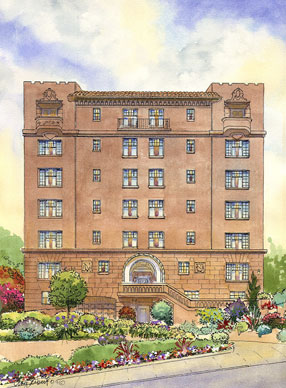Common Interest Development Issues All common interest developments, such as condominiums, are vulnerable to short-sighted self-interests (Hardin 1968), aging condominiums have special problems (Devereaux, “Aging Associations” in ECHO Journal), and both problems are exacerbated by economic stress. Intelligent, responsible leadership will keep the Redstone a great place to live for many decades to come. The pages of this site give my views on projects that would maintain and improve our building, and on issues we need to recognize and deal with. Opinions will vary, but there are facts that should inform every opinion, and these should be laid out where they can be corrected and refined as necessary, so that they are clearly in mind when decisions are made. Our Electric Power Issues Our 1928 building has a very modest 50-60 kW electric power supply, shared across 24 residence units and all common areas – that's an average of less than 2,400 watts (a refrigerator-freezer, a small microwave oven, and a few lights) per residence unit! This works only because many units are occupied part-time, and many residents spend significant time elsewhere. The cost of upgrading PG&E service, not to mention replacing the building's wiring, is prohibitive, so it should be obvious that we must be careful about electric power use and allocation. Some changes should be made:
Unfortunately, in the past our Board has disclaimed any understanding of "all those volts and watts", and prefers not to think about our electric power limits, except to create documentation to the effect that there would be no problem substantially increasing our current usage, and to block relevant calculations and opposing views from being entered into house records. This is ignorant and irresponsible, and should not be tolerated by members concerned about the security of their residential investments. |
